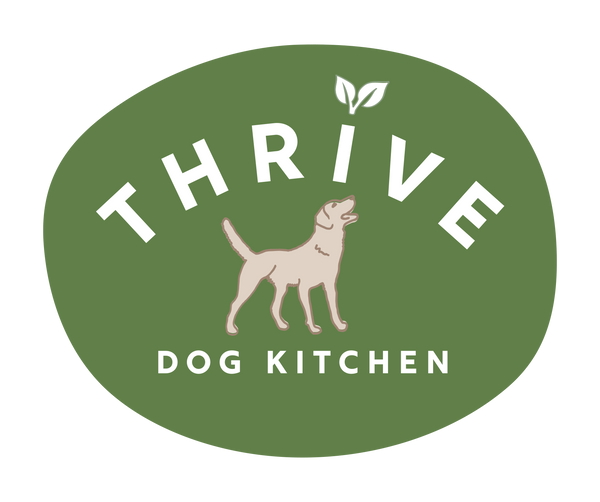
Should I Add Supplements to My Dog's Diet?
Share
What comes to mind when you think of the word "supplement?" Do you think of taking a Vitamin C tablet when you feel the symptoms of a cold? Or, is it taking the multi-vitamin everyday because you want to ensure you're getting all the extra nutrients your body needs. Supplements are not just tablets of super potent doses of a vitamin or mineral. And, they are not just for humans. The addition of supplements in your dog's diet will benefit them. So, yes, you should add supplements to your dog's diet.
In an ideal world you and your dog would not need to take supplements. You both would consume all the nutrients your bodies need to live a long and healthy life through the foods you eat. However, depending on the types of foods you eat, the way the foods are grown and processed, supplementation has its place for you and your dog. Supplements fill in the gaps that the diet does not or cannot adequately fill.
Dog parents like yourself are catching on to the importance and value of supplements for your dog. The global pet supplements market size was estimated at USD 1.91 billion in 2021 and is expected to reach USD 2.02 billion in 2022. That's phenomenal.
Types of Supplements for Your Dog
There are 3 groups of supplements:
- Fresh foods - sourced from whole foods that are minimally processed
- Herbal - sourced from plants
- Homeopathy - sourced from plants, minerals and animals
They come in multiple forms:
- chewables
- powder
- tablet/pill
- whole foods
Supplements are known to support:
- joints/hips
- skin and coat
- digestive health
- supports general well being
Depending on the form of the supplement, will dictate its potency. For example, quercetin, known as nature's anithistamine, comes in a powder/capsule. For your dog to enjoy the benefits of querecitin in its whole food form your dog would have to consume the equivalent of 124 red apples or 217 cups of blueberries a day. Treating your dog's seasonal allergies with a capsule of quercetin makes more sense than feeding them an exuberant amount of apples and blueberries because too much fruit is ill advsied.
Topping your dog's meal with a few fresh whole foods will provide your dog with nutrients that they may not get in their daily diet because adding a nutritional topper to your dog's meal at meal time or as a treat will help your dog be one step closer to optimal health.
Regulation of the Pet Supplement Industry
It is important to note, that not all supplements are created equal because the supplement industry for pets is minimally regulated. The definition of supplements from the Ministry of Primary Industry, the regulator of pet food is open for interpretation. MPI defines supplements as, "mixtures that are either added to animal feed or fed directly to animals. These provide extra nutrients such as vitamins and minerals." Thus, it is important to purchase supplements that are made from whole food sources, rather than synthetic, lab-produced manufacturers.
Food for Thought
Before you incorporate supplements, specifally a herbal or homeopathic one, into your dog's feeding regime consult with a qualified nutritionist and/or integrative veterinarian about your dog's current diet. Adding supplements to your dog's meal is not a quick fix. However, there will be times when supplementation is required for your dog to benefit from the active substance to see an improvement in their health. We recommend and encourage you to give your dog what they need the most from fresh whole foods, including whole food supplements.
A great whole food supplement is Original Blend because it gives your dog an added boost of essential nutrients to support their gut and joints with minimally processed fruits, vegetables and bone broth.
Check out some great testimonials from our regular customers below! And see why they love supplementing their dog's meals with Original Blend.
